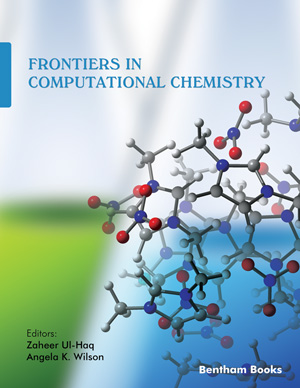Abstract
Recently we have reported potent anti-cancer actions of various steroidal Na+/K+ ATPase inhibitors in multiple cell lines. Furthermore, the most powerful compound identified in this study, the 3-[(R)-3-pyrrolidinyl]oxime derivative (3-R-POD), was highly effective in various tumor cell lines in vitro, and exhibited significant tumor growth inhibition in prostate and lung xenografts in vivo. In the present study we have addressed the molecular mechanisms implicated in the anti-cancer actions of 3-R-POD. We report here that 3-R-POD induces strong apoptotic responses in A549 lung- and in DU145 prostate- cancer cells. These effects are accompanied by significant upregulation of caspase-3 activity. Focussing on A549 cells, we further demonstrate late downregulation of BCL-2- and upregulation of c-Fos- gene transcription. In addition, the steroidal Na+/K+ ATPase inhibitor induced late de-phosphorylation of Focal Adhesion Kinase (FAK) and activation of p38 MAPK. Our findings suggest that the steroidal Na+/K+ ATPase inhibitor 3-R-POD induces apoptosis, paralleled by altered BCL-2 and c-Fos gene transcription, inhibition of the pro-survival FAK signalling, up-regulation of the pro-apoptotic p38 MAPK pathway and stimulation of caspase-3 activity.
Keywords: Apoptosis, lung cancer, prostate cancer, signaling, steroidal Na+/K+ ATPase inhibitor.
Anti-Cancer Agents in Medicinal Chemistry
Title:A Steroidal Na+/K+ ATPase Inhibitor Triggers Pro-apoptotic Signaling and Induces Apoptosis in Prostate and Lung Tumor Cells
Volume: 14 Issue: 8
Author(s): Sabina Honisch, Saad Alkahtani, Michalis Kounenidakis, Guilai Liu, Saud Alarifi, Hamad Al-Yahya, Konstantinos Dimas, Abdullah A. AlKahtane, Kyriakos C. Prousis, Bader Al-Dahmash, Theodora Calogeropoulou, Konstantinos Alevizopoulos, Florian Lang and Christos Stournaras
Affiliation:
Keywords: Apoptosis, lung cancer, prostate cancer, signaling, steroidal Na+/K+ ATPase inhibitor.
Abstract: Recently we have reported potent anti-cancer actions of various steroidal Na+/K+ ATPase inhibitors in multiple cell lines. Furthermore, the most powerful compound identified in this study, the 3-[(R)-3-pyrrolidinyl]oxime derivative (3-R-POD), was highly effective in various tumor cell lines in vitro, and exhibited significant tumor growth inhibition in prostate and lung xenografts in vivo. In the present study we have addressed the molecular mechanisms implicated in the anti-cancer actions of 3-R-POD. We report here that 3-R-POD induces strong apoptotic responses in A549 lung- and in DU145 prostate- cancer cells. These effects are accompanied by significant upregulation of caspase-3 activity. Focussing on A549 cells, we further demonstrate late downregulation of BCL-2- and upregulation of c-Fos- gene transcription. In addition, the steroidal Na+/K+ ATPase inhibitor induced late de-phosphorylation of Focal Adhesion Kinase (FAK) and activation of p38 MAPK. Our findings suggest that the steroidal Na+/K+ ATPase inhibitor 3-R-POD induces apoptosis, paralleled by altered BCL-2 and c-Fos gene transcription, inhibition of the pro-survival FAK signalling, up-regulation of the pro-apoptotic p38 MAPK pathway and stimulation of caspase-3 activity.
Export Options
About this article
Cite this article as:
Honisch Sabina, Alkahtani Saad, Kounenidakis Michalis, Liu Guilai, Alarifi Saud, Al-Yahya Hamad, Dimas Konstantinos, AlKahtane A. Abdullah, Prousis C. Kyriakos, Al-Dahmash Bader, Calogeropoulou Theodora, Alevizopoulos Konstantinos, Lang Florian and Stournaras Christos, A Steroidal Na+/K+ ATPase Inhibitor Triggers Pro-apoptotic Signaling and Induces Apoptosis in Prostate and Lung Tumor Cells, Anti-Cancer Agents in Medicinal Chemistry 2014; 14 (8) . https://dx.doi.org/10.2174/1871520614666140618114418
| DOI https://dx.doi.org/10.2174/1871520614666140618114418 |
Print ISSN 1871-5206 |
| Publisher Name Bentham Science Publisher |
Online ISSN 1875-5992 |
Call for Papers in Thematic Issues
Induction of cell death in cancer cells by modulating telomerase activity using small molecule drugs
Telomeres are distinctive but short stretches present at the corners of chromosomes and aid in stabilizing chromosomal makeup. Resynthesis of telomeres supported by the activity of reverse transcriptase ribonucleoprotein complex telomerase. There is no any telomerase activity in human somatic cells, but the stem cells and germ cells undergone telomerase ...read more
Role of natural compounds as anti anti-cancer agents
Cancer is considered the leading cause of worldwide mortality, accounting for nearly 10 million deaths in 2022. Cancer outcome can be improved through an appropriate screening and early detection and through an efficient clinical treatment. Chemotherapy remains an important approach in treatment o f several types of cancers, even though ...read more
Signaling and enzymatic modulators in cancer treatment
Cancer accounts for nearly 10 million deaths in 2022 and is considered the leading cause of worldwide mortality. Cancer outcome can be improved through an appropriate screening and early detection and through an efficient clinical treatment. Chemotherapy, radiotherapy and surgery are the most important approach for the treatment of several ...read more
 44
44
- Author Guidelines
- Graphical Abstracts
- Fabricating and Stating False Information
- Research Misconduct
- Post Publication Discussions and Corrections
- Publishing Ethics and Rectitude
- Increase Visibility of Your Article
- Archiving Policies
- Peer Review Workflow
- Order Your Article Before Print
- Promote Your Article
- Manuscript Transfer Facility
- Editorial Policies
- Allegations from Whistleblowers
Related Articles
-
Immune Mechanism, Aging, Season and Diseases: Modulatory Role of Melatonin
Immunology, Endocrine & Metabolic Agents in Medicinal Chemistry (Discontinued) Evolution of Peptide-Based Prostate-Specific Membrane Antigen (PSMA) Inhibitors: An Approach to Novel Prostate Cancer Therapeutics
Current Medicinal Chemistry Apoptosis Induction by Erucylphosphohomocholine via the 18 kDa Mitochondrial Translocator Protein: Implications for Cancer Treatment
Anti-Cancer Agents in Medicinal Chemistry The Brain, the Penis and Steroid Hormones: Clinical Correlates with Endothelial Dysfunction
Current Pharmaceutical Design Novel Superactive Leptin Antagonists and their Potential Therapeutic Applications
Current Pharmaceutical Design An Updated Patent Therapeutic Agents Targeting MMPs
Recent Patents on Anti-Cancer Drug Discovery Synthesis and Evaluation of Cytotoxicity of Novel Coumarin Peptide Alcohol Derivatives
Medicinal Chemistry Antidepressant-Like Components of Hypericum perforatum Extracts: An Overview of Their Pharmacokinetics and Metabolism
Current Drug Metabolism Rikkunshito and Ghrelin Secretion
Current Pharmaceutical Design Image-Guided Drug Delivery with Single-Photon Emission Computed Tomography: A Review of Literature
Current Drug Targets Synthesis and Investigation of the Role of Benzopyran Dihydropyrimidinone Hybrids in Cell Proliferation, Migration and Tumor Growth
Anti-Cancer Agents in Medicinal Chemistry Thymoquinone, an Active Compound of Nigella sativa: Role in Prevention and Treatment of Cancer
Current Pharmaceutical Biotechnology All for Statins and Statins for All; An Update
Current Pharmaceutical Design FOXM1 and its Oncogenic Signaling in Gastric Cancer
Recent Patents on Anti-Cancer Drug Discovery Pharmacokinetics of Darolutamide, its Diastereomers and Active Metabolite in the Mouse: Response to Saini NK et al. (2020)
Drug Metabolism Letters Positron Emission Tomography and Computer Tomography (PET/CT) in Prostate, Bladder, and Testicular Cancers
Current Medicinal Chemistry Focal Adhesion Kinase Controls Prostate Cancer Progression Via Intrinsic Kinase and Scaffolding Functions
Anti-Cancer Agents in Medicinal Chemistry Gonadotropin-Releasing Hormone Receptor Signaling: Biased and Unbiased
Mini-Reviews in Medicinal Chemistry Regulation of Angiotensin II Receptor Expression
Current Pharmaceutical Design Endocannabinoids as Regulators of Transient Receptor Potential (TRP)Channels: a Further Opportunity to Develop New Endocannabinoid-Based Therapeutic Drugs
Current Medicinal Chemistry



























